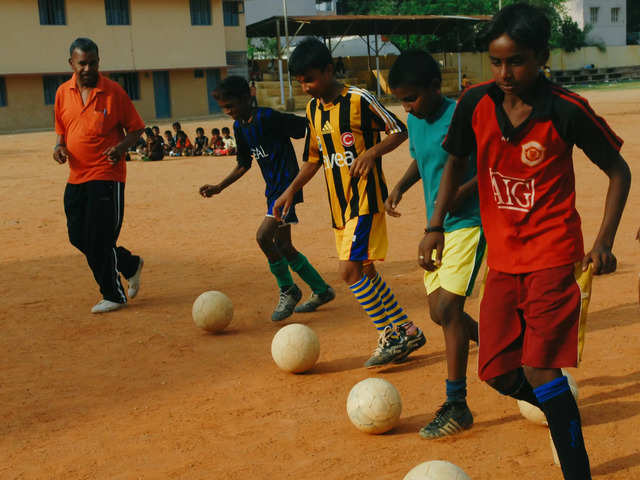
We have recalibrated our goals, from being number centric to being centred around how our resources can help communities: Sapna Arora of OLX
Arora share with us how the second wave has changed OLX’s priorities
May 27, 2021, 11:29 IST
brands
Affirmative storytelling is at heart of the new reset: Sapna Arora of OLX
May 27, 2021, 11:29 IST
Arora share with us how the second wave has changed OLX’s priorities
- In our latest interview series, we speak to a few CMOs to understand how they are helping out their organisations find the right ways to connect with consumers.
- Sapna Arora, CMO,
OLX shares with us how her role has changed over the last few months and walks us through the platform's combat strategy for the horrifying second wave of COVID-19.
Omni-channel marketplace OLX has altered its marketing approach to be relevant today. It has updated its communication and messaging by focussing on community building and using its platform to amplify pleas on social media.
Sapna Arora, CMO, OLX has found her role changing as a marketer and brand custodian. Her mantra has been to be agile, resilient, empathetic, helpful and kind.
The horrifying scale of the second wave has made all playbooks on marketing redundant. Last year, CMOs in India focused on shifting their marketing monies from traditional mediums to digital platforms. Now, Arora’s role at OLX has been about helping the brand adjust to the sudden changes in the macro-environment, prepare for the uncertain tomorrow, use communication tools to help out customers and address vaccine hesitancy.
Arora further shared with us how the second wave has changed OLX’s priorities, what route should marketers take to and much more.
Excerpts:
Q. How has your communication changed during what is probably one of the worst calamities we've faced in recent times? What is your B2C communication all about?
It’s true, an emergency of this magnitude, felt across all nations, and for such a prolonged time, has not been witnessed before, not in the last 100 years. Rare complications are further deepening the crisis. We are moving with caution and with empathy. Our communication has vastly changed. How we collectively arrest the progression of this disease will be the litmus test to our awareness as a society.
Our endeavour is to ensure that we remain relevant to our users at all times. We have opened up our social media handles to people seeking help, allowing all users to leverage our large reach and ensure wider sharing of messages. To reach out further, we have started donation drives and have partnered with Give India to provide food to Covid-affected families. Brand messaging now shows our side of care, offering comfort, encouragement and hope, addressing vaccine hesitancy, encouraging masking, sanitising, staying home, staying safe, connecting plasma donors with recipients, warning about fraudsters, and so on. It’s no more just a transactional relationship. We have to be real and relevant and show purpose, that’s what’s expected of leading brands at this time.
Q. How has your schedule changed as a CMO during the second wave? What are some of the new tasks that you are doing? Can you draw a comparison between last year's lockdown with this year's?
We don’t know how fast we’ll be able to bounce back from the second wave or what the next normal will be like. The buoyancy that emerged after the first wave was quickly dissipated in the second wave. We need to ensure business continuity, as well as show empathy to consumers, and also within the organisation. There’s no playbook to dip into for response planning. On the business side, among the new tasks, is to offer better content experiences to online consumers, touch more and more digital access points.
We had plans that needed to be modified, and that has been the impact on my schedule. The messaging has moved to not just about updating product news, but also to show a higher degree of sensitivity and resilience. Agility, along with mission and purpose, are the reigning marketing principles now. Last year, it was all about digitising, educating people about the virus, hand hygiene, and celebrating frontline heroes. This year, it’s more about reaching out, about vaccines, medicines, oxygen supplies, and offering a helping hand. Affirmative story-telling is at heart of the new reset. Soon after the crisis is sorted, our new tasks would be to think hard about what consumers in the next normal would want. We’ll certainly have to redesign shopping journeys for our consumers, develop adaptive ecosystems, and so on, but as of now, that can wait.
Q. As a company, how are you using your advertising tools to help out people?
The scale and ferocity of the second wave has altered all understood paradigms. There are heart rending stories of loss, and people are talking only about essentials, about conscious consumption. At a time when everything feels impossibly hard, there is a greater need to remain optimistic and to steer hyper-local activations. We are infusing positive content across our digital platforms. Responsible brands are expected to have a wider agenda. While social media is full of all kinds of content on the virus, reliable and trustworthy content is hard to find. We have opened up our social media handles for all Covid related queries, people can post their SOS calls, run enquiries that will help them reach wider audiences due to the vast reach of our brand, and we are helping in food supplies for affected families. We are also running campaigns on public discipline, on all our social media handles.
Q. How has your role as a marketer changed?
With the constant change that we are all experiencing, like the shift in containment zones, virus mutations, gaps in vaccinations, and so on, our roles, tasks and priorities have also been changing. Stakeholders, consumers and employees are looking at the brand, to know what we stand for, what values we uphold. We need to be realistic in our expectations, our goals, and in our messaging. To gain trust, we need to listen to our communities, employees and customers. We are looking beyond the traditional spaces of marketing, such as advertising and market-driven campaigns, to be relevant to people. We have tweaked our social media content around Covid-related information, encouraging people to vaccinate and to remain masked.
Q. What is your goal for this quarter? How have your goals changed due to the second wave?
We have recalibrated our goals, from being number centric to being centred around how our resources can help communities. The goal presently is revolving around building strong connections with our consumers, fostering emotional togetherness while remaining socially distanced, to suppress virus spread. As a brand, we have come forward, using technology to build cohesive customer experiences. We recognize the human tragedy, and also the need to keep business running. As we understand now, the situation will rise and flare up at different times in different market segments. We will be mindful enough to act accordingly, and will continue to rejig our messaging, to show resilience and empathy. One can’t think in silos, or take an absolute stance amid such volatility.
Q. As a leader, how are you trying to be there for your employees?
At this time, CMOs need to help their organisations adjust to the new realities. We have moved swiftly to expand our digital operations. The pandemic has deeply impacted the way businesses work. We have to show resilience, adaptability and help each person in the organisation to deal with the change. It’s a volatile situation, people are anxious, jobs need to be saved. We have adopted a people-first approach. Our teams have prioritised physical and emotional well-being of all.
Q. No communication or relevant/empathetic communication? Which route should a brand take during difficult times like these?
In times of crisis, governments, as well as employees and consumers look up to their brands for answers. We have to cut the clutter, come on the front foot, move in the direction of the prevailing collective sentiment. By showing compassion, offering hope and understanding, and delivering relevant and trustworthy messages, brands show purpose, and better connectivity with their consumers. When a brand has reach and voice that can impact lives, the expected course of action is to come forward and help. At OLX, we are mindful of our responsibilities, and are addressing community pain points. Purpose establishes a brand’s culture and strong ethics. It has always been part of top brand cultures of the world. Now it’s playing a central role.
Q. What are your areas of focus for now?
Till the time the Covid positivity rate declines, it’s not business-as-usual. We cannot afford to drop the ball. We are updating our messaging, focussing on community building; care is central to the underlying thrust right now. Our messages are helpful and uplifting. Holding each other’s hand, we have to steer a route for recovery.
INSIDER INTELLIGENCE REPORTS







